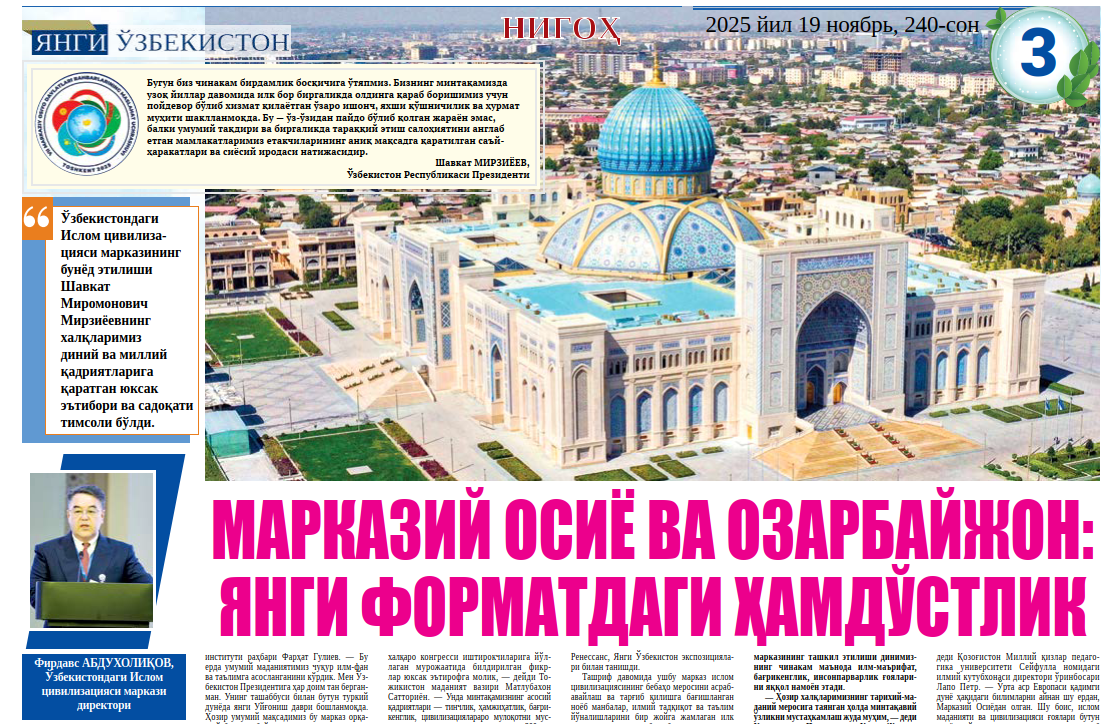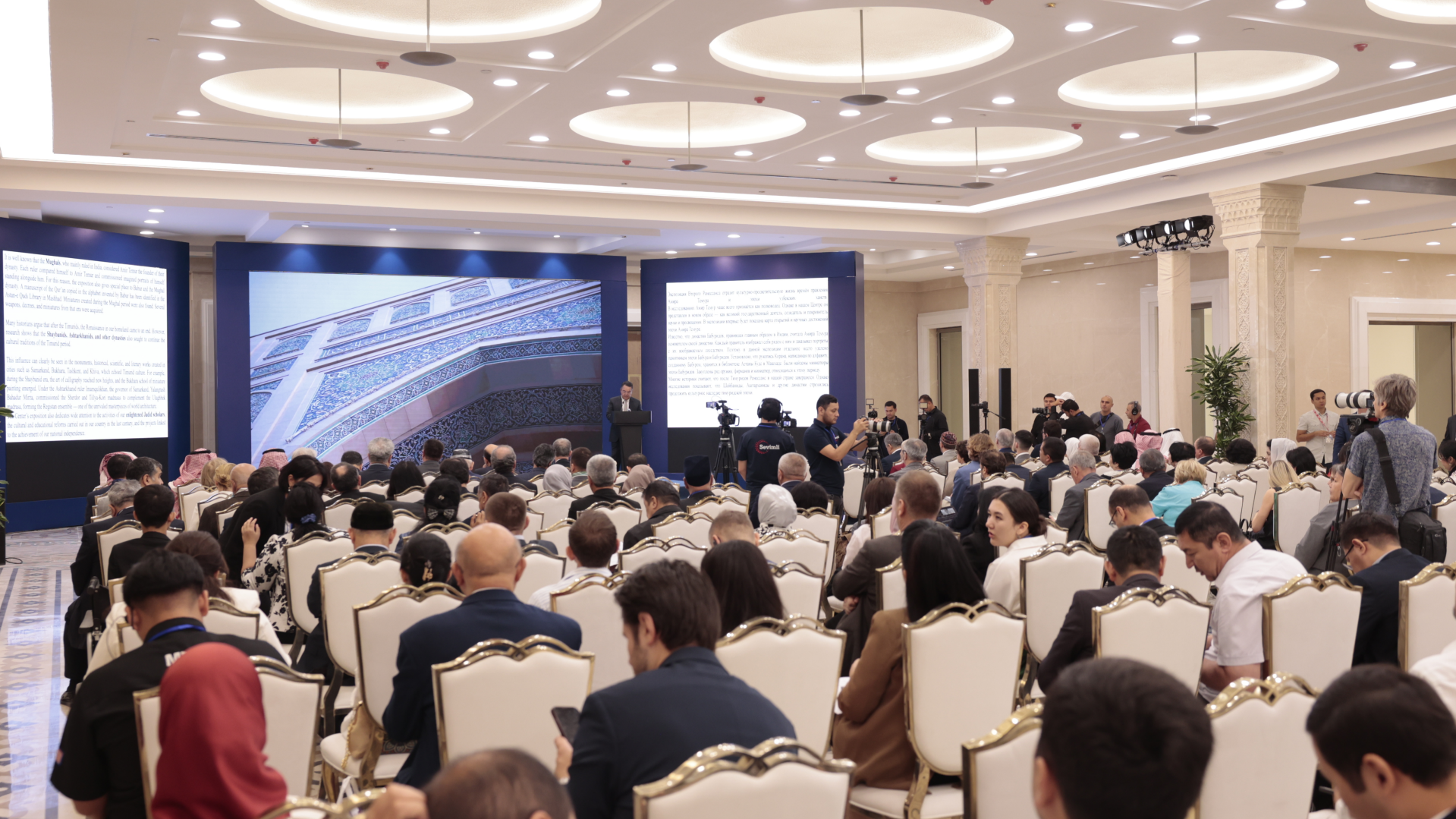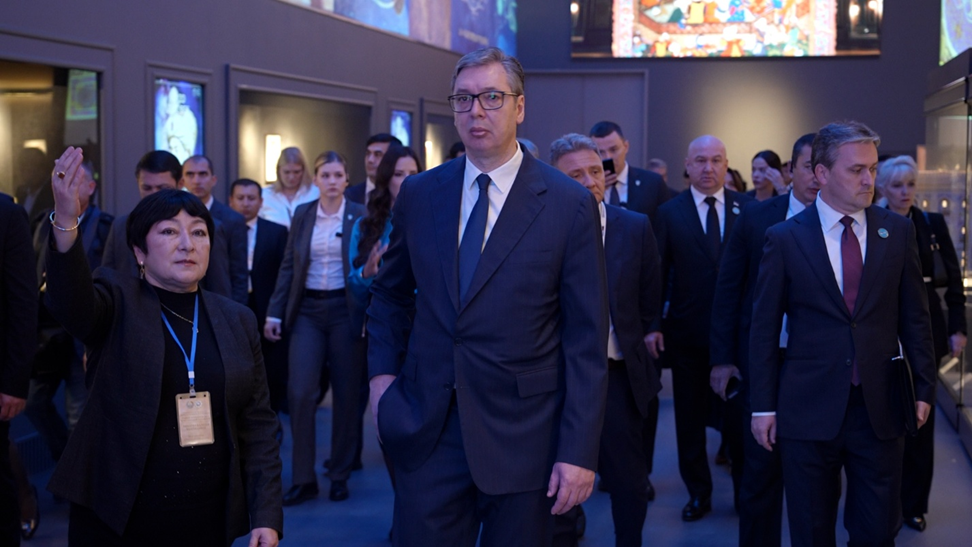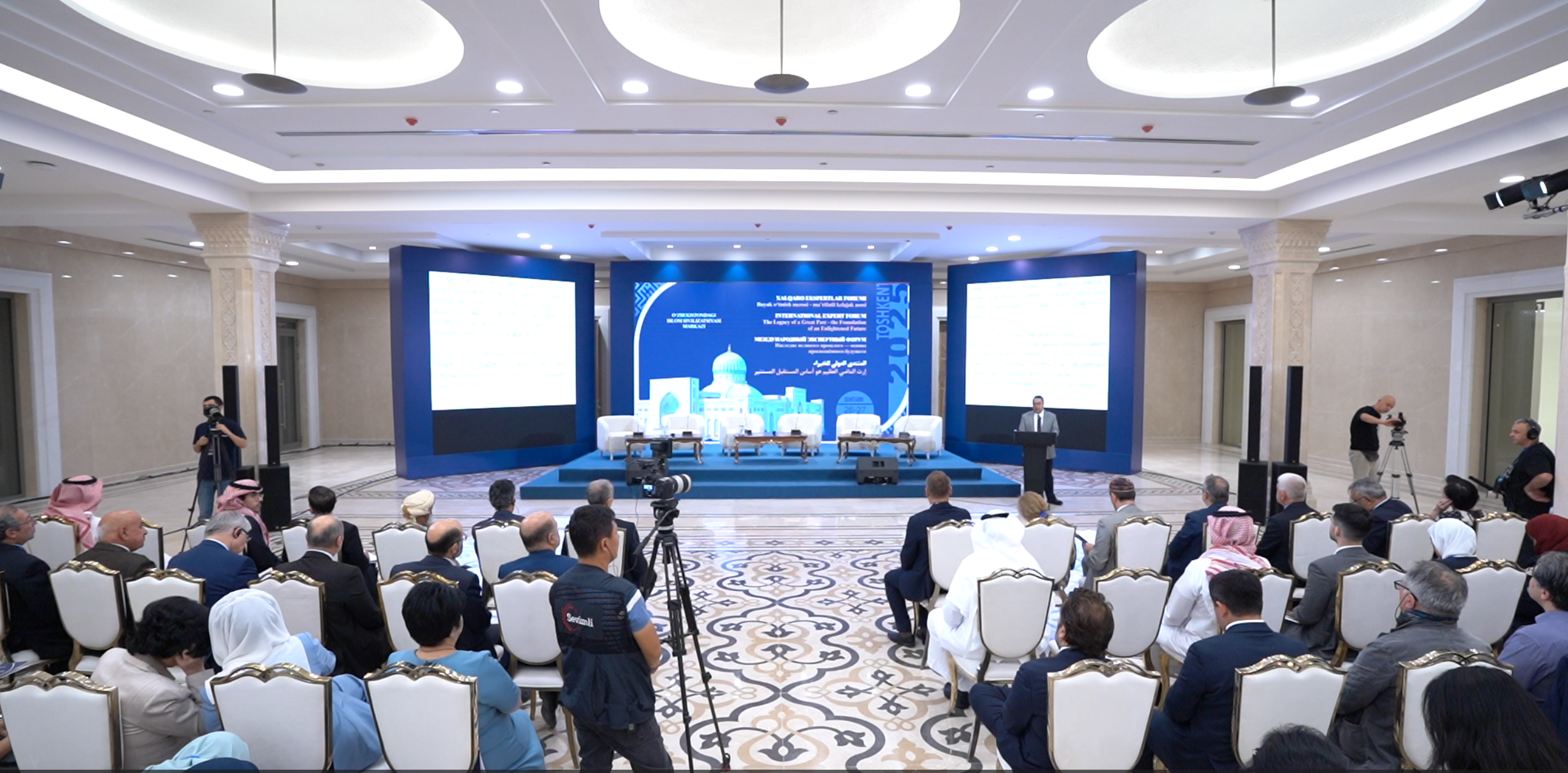Central Asia and Azerbaijan: friendship in a new format

Today we are entering a truly unified stage. For the first time in many years, an environment of mutual trust, good-neighborliness, and respect is taking shape in our region, serving as a foundation for moving forward together. This is not a process that emerged on its own, but the result of the purposeful efforts and political will of our countries’ leaders, who have clearly understood their shared destiny and potential for joint development.
Shavkat Mirziyoyev,
President of the Republic of Uzbekistan
On November 13–15, 2025, the capital city of Tashkent once again hosted important historic events. First, the regular Consultative Meeting of the Heads of State of Central Asian republics was held. Alongside the discussion of a number of pressing issues and future plans on the agenda, as well as the adoption of key decisions, the Republic of Azerbaijan was accepted as a full member of the Consultative Council. Thus, Central Asia and the South Caucasus were united within a single organization. In this region, opportunities have expanded primarily for the development of transport corridors and for access to the markets of the Middle East and Europe through improved transport routes.
The friendship of these states, which share common history, culture, religion, and educational heritage, will undoubtedly serve to stabilize peace in the region and to expand cooperation.
On the days of the summit of the leaders of Central Asian states and the Republic of Azerbaijan, at the initiative of the Leader of the Republic of Uzbekistan, the international congress “Central Asia: shared cultural and educational heritage – shared future” was held at the Islamic Civilization Center in Uzbekistan. The congress was organized jointly by the Islamic Civilization Center in Uzbekistan, the Ministry of Foreign Affairs, the World Society for the Study, Preservation and Popularization of the Cultural Legacy of Uzbekistan (WOSCU), the Academy of Sciences of the Republic of Uzbekistan, and the International Institute of Central Asia. Nearly 300 representatives of science, education, culture, religion, literature, and art from Uzbekistan, Azerbaijan, Kazakhstan, Kyrgyzstan, Tajikistan, and Turkmenistan took part.
The greeting address of the President of the Republic of Uzbekistan Shavkat Mirziyoyev to the participants of the congress deeply moved the attendees. In particular, it stated:
“In today’s complex time, when conflicts and tensions are intensifying around the world, learning lessons from history, preserving peace and stability, relying on science and enlightenment in all spheres, strengthening the atmosphere of mutual solidarity among peoples, and developing intercivilizational dialogue remain among our most urgent tasks. I am confident that today’s forum, aimed at strengthening friendship and partnership ties between our countries and expanding humanitarian cooperation, will become an effective platform for scientific and cultural dialogue.”
According to Adil Karimli, Minister of Culture of the Republic of Azerbaijan:
“The speech of the President of the Republic of Uzbekistan at the international congress, as well as his address to the participants about peace and mutual respect in our region, became a strong and inspiring reminder of the role of science and enlightenment in our lives today. His emphasis on preserving spiritual heritage and developing cultural cooperation fully corresponds to the official position of Azerbaijan. The international congress once again confirmed our countries’ aspiration to deepen scientific and cultural cooperation. I am confident that the results of the forum have given new momentum to joint initiatives and to strengthening humanitarian ties.”
The congress brought together representatives of international organizations, the diplomatic corps, scientific and cultural institutions, as well as scholars and cultural figures from the countries of Central Asia and Azerbaijan on a single platform.
“The establishment of the Islamic Civilization Center in Uzbekistan is a historic event,” says Farhat Guliyev, head of the Institute of Archaeology and Anthropology of the Azerbaijan National Academy of Sciences.
“Here we saw that our shared culture is deeply based on science and education. I always admire the President of Uzbekistan. At his initiative, a new era of revival is beginning throughout the Turkic world. Today our common goal is to integrate young people through this Center so that Uzbek, Azerbaijani, Kazakh, Turkmen, Tajik, and Kyrgyz youth consider themselves part of a single cultural space and a single ideology. We are ready to cooperate and contribute to the study of our great heritage from the Karakhanid period to the Seljuks. The goals of the Center are very noble, and we fully support them.”
During this prestigious three-day event, more than 30 activities, meetings, roundtable discussions, sectional sessions, exhibitions, displays, and presentations were held.
Familiarization with the exhibitions of the Islamic Civilization Center, along with the ideas and proposals voiced during plenary and sectional meetings, further strengthened among the intellectual representatives of the brotherly republics a sense of shared cultural and educational heritage and common history, and created broad opportunities for sincere exchanges of views and for developing joint scientific and practical plans for future cooperation. The opinions expressed by the event participants clearly confirmed this.
“I sincerely believe that this congress has been a truly unique and historic opportunity to remind the entire world of our great common spiritual heritage, which has for centuries inspired and united the great figures of art and culture of Central Asia,” said Askar Zhumadildayev, Vice President of the National Academy of Sciences of the Republic of Kazakhstan.
“As President Shavkat Mirziyoyev specifically emphasized, our region has always been an important center of world civilization, science, and culture. Today, the very demands of the time require us to unite our efforts to preserve these invaluable cultural traditions and to consistently strengthen the bonds of brotherhood and good neighborliness among our peoples.”
“The views expressed in the address of the President of the Republic of Tajikistan Shavkat Mirziyoyev to the participants of the international congress ‘Central Asia: A Single Spiritual and Educational Heritage – A Common Future’ deserve the highest recognition,” said Matlubakhon Sattoriyon, Minister of Culture of the Republic of Tajikistan.
“They clearly reflect the core values of our region: peace, solidarity, tolerance, and the strengthening of intercivilizational dialogue. The congress, which brought together more than 300 scholars, researchers, and cultural figures, became an important platform for joint discussions on preserving our shared spiritual heritage. I am confident that the results of the forum will serve to strengthen cultural cooperation among our countries, to develop new projects, and to further promote joint initiatives in the field of education.”
On November 15, the Presidents participating in the 7th Consultative Meeting of the Heads of State of Central Asian countries visited the Islamic Civilization Center in Uzbekistan.
The President of Azerbaijan Ilham Aliyev, the President of Tajikistan Emomali Rahmon, the President of Kyrgyzstan Sadyr Japarov, and the President of Kazakhstan Kassym-Jomart Tokayev, accompanied by the President of Uzbekistan Shavkat Mirziyoyev, familiarized themselves with the Holy Qur’an Hall where the priceless spiritual treasure of the
Muslim world – the Uthman Mushaf is preserved, as well as the exhibitions dedicated to the pre-Islamic period, the First Renaissance, the Second Renaissance, and New Uzbekistan.
During the visit, it was once again emphasized that this center is the first complex that brings together in one place unique sources, scientific research, and educational directions dedicated to preserving and promoting the priceless heritage of Islamic civilization. The leaders of the brotherly countries noted the importance of strengthening cultural ties among the countries of the region, advancing spiritual and educational projects, and developing common humanitarian values.
High appreciation was given to Uzbekistan’s large-scale efforts to preserve and promote the rich shared heritage of the region. Confidence was expressed that the complex would serve as a modern research center and open new horizons for scientific and cultural cooperation among the countries of the region.
“The establishment of the Islamic Civilization Center in Uzbekistan became a symbol of Shavkat Miromonovich Mirziyoyev’s high respect for and devotion to the religious and national values of our peoples,” said the President of Azerbaijan Ilham Aliyev.
“At a time when Islamophobia is taking on a systematic character worldwide, the establishment of the Islamic Civilization Center clearly demonstrates that our religion truly embodies the ideas of enlightenment, tolerance, and humanism.”
“It is very important today to strengthen regional identity by relying on the historical and cultural heritage of our peoples,” said the President of the Republic of Kazakhstan Kassym-Jomart Tokayev.
“The Islamic Civilization Center is a grand, unique, scientific, tourist, and ethnocultural project. This center, opened at the initiative of the President of Uzbekistan, can become a common platform for important scientific research in Tashkent.”
On the same day, the Presidents of the Central Asian countries and Azerbaijan also took part in the award ceremony of the international “Legacy of the Future” prize, established by the decision of the President of the Republic of Uzbekistan.
This international award is aimed at encouraging domestic and foreign creators who have achieved great success in the fields of literature, culture, art, science, education, and digital technologies.
According to the decision of the jury, Sultan Raev, Secretary General of the International Organization of Turkic Culture (TURKSOY) and People’s Writer of Kyrgyzstan, became the first winner in the “Literature” nomination; People’s Poet of Tajikistan Davlat Safarzoda in the “Culture” nomination; actor of the M. Auezov Kazakhstan National Drama Theatre Yerkebulan Daiyrov in the “Theatre and Cinema” nomination; People’s Artist of Azerbaijan Alim Qasimov in the “Music and Dance” nomination; People’s Artist of Turkmenistan Babasary Annamyradov in the “Visual and Applied Arts” nomination; and Deputy Director of the International Center under the Ministry of Agriculture of Uzbekistan, Doctor of Agricultural Sciences Dilfuza Egamberdieva in the “Science, Education and Digital Technologies” nomination.
In the presence of the heads of state, the laureates were presented with a statuette, a diploma, and a cash prize of 10,000 US dollars. The heads of state took photographs with the winners.
The countries of Central Asia and Azerbaijan occupy a worthy place in the international community thanks to their ancient history, unique culture, and rich educational heritage. This truth was repeatedly emphasized during the latest summit of Central Asian leaders and the International Congress.
“I consider this congress a truly significant event in the civilization of humanity,” said Lapo Petr, Deputy Director of the Scientific Library named after Seyfulla at the Kazakhstan National Women’s Pedagogical University.
“Medieval Europe received knowledge about the ancient world precisely from here, from Central Asia. For this reason, promoting our Islamic culture and civilization so that its ideas are correctly understood throughout the world is extremely important today. The initiative of the President of Uzbekistan, which has given a new impetus to the development of culture, art, literature, and, in general, the entire Islamic world, made a particularly strong impression on me. I believe that the activities of the Islamic Civilization Center will help peoples to better understand one another and, through this, will contribute to the sustainable development of all humanity.”
The international forum “Central Asia: shared cultural and educational heritage – shared future” became an important step toward strengthening the unity and common values of the countries of the region and creating a great future for coming generations.
The strengthening of friendship and brotherhood ties among the peoples of the region, with a population of nearly 100 million, has become a practical result of the large-scale initiatives and efforts of our President. It is worth noting that such a large event, with the participation of representatives of science, culture, enlightenment, literature and art, education, and information technologies from Central Asia and Azerbaijan, was held for the first time. At the conclusion of the event, a special declaration was adopted by the participants of the Congress.
The Head of our State had emphasized that the doors of the Islamic Civilization Center in Uzbekistan should always be open not only to Uzbek but also to foreign scholars and specialists, and that all conditions would be created here for conducting scientific research and mutual cooperation. Today we are witnessing the realization of these words.
It can be said with confidence that at a time when mutual confrontations and various religious, national, and political tensions still continue in the world, the establishment of cooperation and unity in all spheres in our region is of decisive importance for the development of our countries. The congress, which concluded its work just recently, became a clear expression of this cooperation and solidarity.
Firdavs Abdukhalikov,
Director of the Islamic Civilization Center in Uzbekistan
Most read

Over 100 experts from more than 20 countries of the world are in Tashkent!

President of Serbia Aleksandar Vučić visited the Islamic Civilization Center in Uzbekistan

The Center for Islamic Civilization – a global platform leading towards enlightenment











